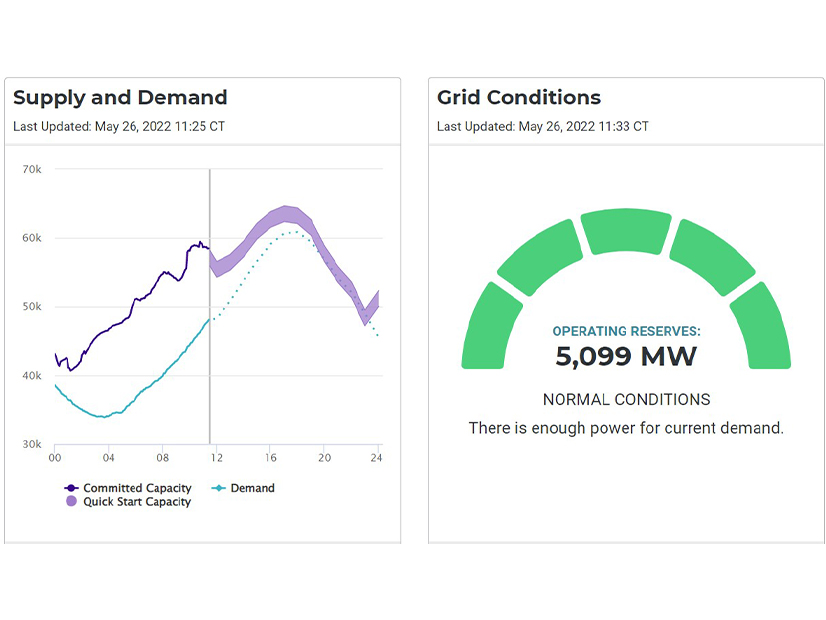After a brief respite, the heat has returned to Texas and, with it, more stress on the ERCOT grid.
The state’s grid operator issued an operating condition notice (OCN), its second of the late-spring season, to market participants for Saturday through Monday. ERCOT said it is forecasting temperatures to be above 94 degrees Fahrenheit in its North Central and South Central weather zones.
ERCOT projects demand to peak at 67.2 GW on Saturday. About 16 GW of thermal generation was offline as of Thursday morning, a persistent problem with the grid operator’s conservative operations that has procured about 5 GW of operating reserves each day.
 The weekend forecast for Texas | Accuweather
The weekend forecast for Texas | Accuweather
Demand was only expected to just top 60 GW on Thursday.
A cold front last weekend brought more seasonable temperatures and thunderstorms to much of Texas after weeks of May heat. However, a high-pressure system over the state is expected to pull in moisture from the Gulf of Mexico and increase humidity as temperatures escalate into the 90s. Far West Texas and the Panhandle are expected to break triple digits this weekend.
The grid operator issued an OCN on May 3 that was extended several times through May 20. OCNs are ERCOT’s lowest-level communication in anticipation of a possible emergency condition. Any emergency condition comes when staff determine the system’s safety or reliability is compromised or threatened.
ERCOT asked Texans to conserve electricity on May 13, which officials later termed a “request.” Interim CEO Brad Jones has said he is “confident” about the summer, while Public Utility Commission Chair Peter Lake continues to say the grid “is more reliable than it has ever been before.” (See ERCOT, PUC Say Texas Ready for Summer.)
During that period, demand eventually peaked at 71.2 GW on May 19, the fourth straight day demand exceeded 70 GW and the sixth time that month. The monthly record for May had been 67.3 GW, set in 2018. The June record is 70.3 GW, set last year.
ERCOT is expecting peak demand to hit a record 77.3 GW this summer, according to its latest seasonal assessment of resource adequacy Monday. That would shatter the current all-time mark of 74.8 GW set in August 2019.




